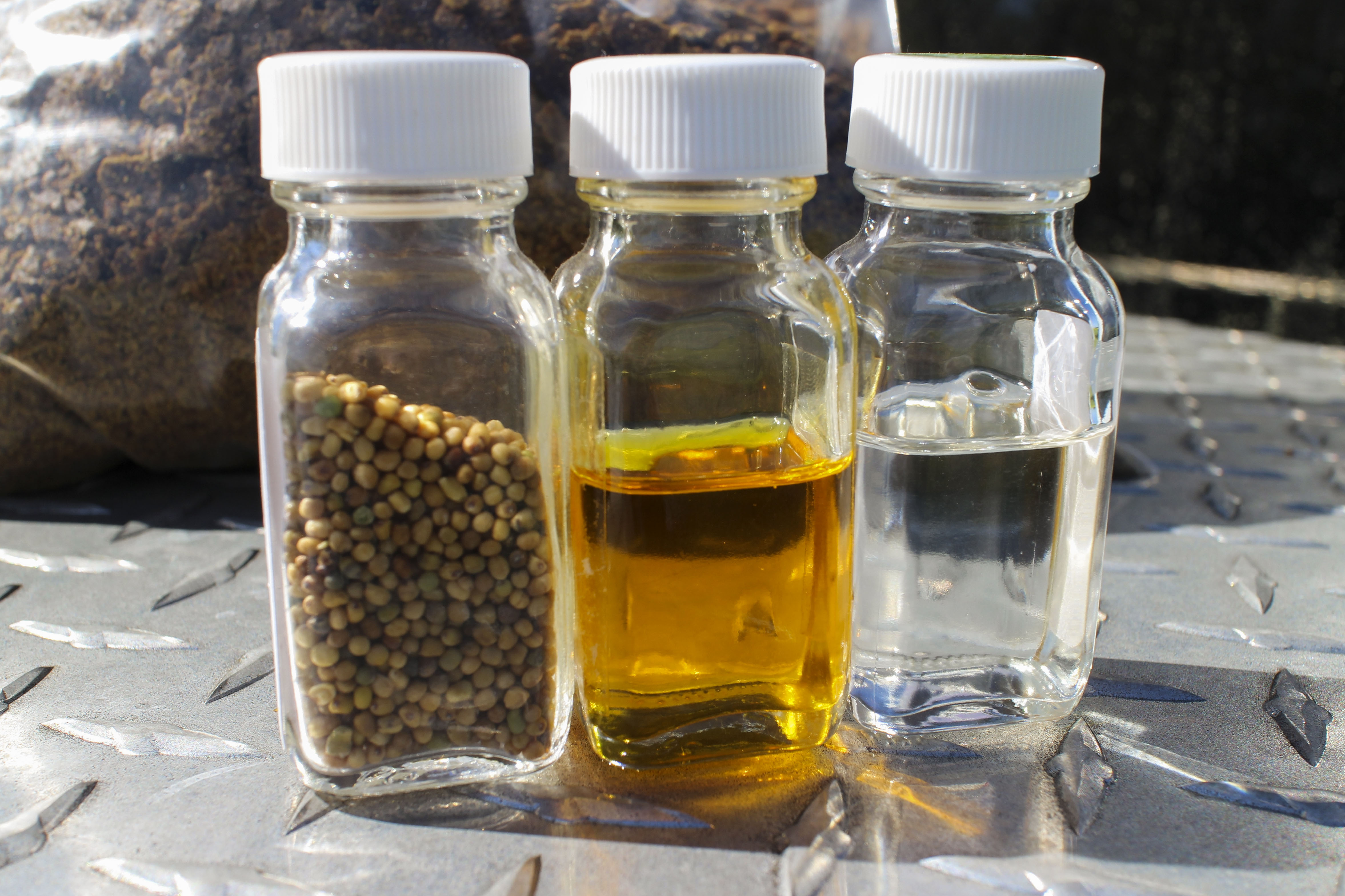UF/IFAS researchers turn seed into jet fuel for Navy and crops into cash for farmers
Imagine jet fuel made from a crop that’s renewable, brings in income and can feed cattle. Researchers at the University of Florida Institute of Food and Agricultural Sciences have found a way to turn mustard seed into a winning solution for farmers and the United States Navy.
UF/IFAS plant pathologist Jim Marois is leading the effort to make the jet fuel from seed. “It’s renewable, does not have to be blended as with other biofuels and it’s not harmful to the environment,” said Marois of the North Florida Research and Education Center in Quincy, Florida.
Marois and other researchers are using a grant from the United States Navy and the Florida Department of Agriculture and Consumer Services to study how to best grow Ethiopian mustard and determine which varieties work best in Florida. Florida, Canada and South Dakota are working to meet the Navy’s 8-million-barrel goal by 2020.
Two years ago, IFAS researchers started out with 20 acres of Ethiopian mustard at the North Florida Research and Education Center. Last winter, they grew 3,500 acres; this winter they expect to grow 25,000 acres.
Studies show that fuel from the Ethiopian mustard seed produces half the black carbon (incomplete combustion) exhaust as fossil fuel, Marois said. Also, with its higher flash point, the fuel is safer for use on Navy ships where fires are a real threat, he said.
Local farmers benefit, too, Marois said, as the seed is a great winter crop that allows farmers to make money in the offseason. “The mustard seed not only brings in income, but also reduces erosion and creates better summer crops,” he said. “The project benefits the Navy, local farmers and cattle, who are fed the crushed seeds. It’s a win-win for everyone.”
Credits
Writer: Beverly James, 352-273-3566, beverlymjames@ufl.edu
